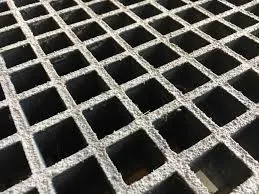
-
 Afrikaans
Afrikaans -
 Albanian
Albanian -
 Amharic
Amharic -
 Arabic
Arabic -
 Armenian
Armenian -
 Azerbaijani
Azerbaijani -
 Basque
Basque -
 Belarusian
Belarusian -
 Bengali
Bengali -
 Bosnian
Bosnian -
 Bulgarian
Bulgarian -
 Catalan
Catalan -
 Cebuano
Cebuano -
 China
China -
 China (Taiwan)
China (Taiwan) -
 Corsican
Corsican -
 Croatian
Croatian -
 Czech
Czech -
 Danish
Danish -
 Dutch
Dutch -
 English
English -
 Esperanto
Esperanto -
 Estonian
Estonian -
 Finnish
Finnish -
 French
French -
 Frisian
Frisian -
 Galician
Galician -
 Georgian
Georgian -
 German
German -
 Greek
Greek -
 Gujarati
Gujarati -
 Haitian Creole
Haitian Creole -
 hausa
hausa -
 hawaiian
hawaiian -
 Hebrew
Hebrew -
 Hindi
Hindi -
 Miao
Miao -
 Hungarian
Hungarian -
 Icelandic
Icelandic -
 igbo
igbo -
 Indonesian
Indonesian -
 irish
irish -
 Italian
Italian -
 Japanese
Japanese -
 Javanese
Javanese -
 Kannada
Kannada -
 kazakh
kazakh -
 Khmer
Khmer -
 Rwandese
Rwandese -
 Korean
Korean -
 Kurdish
Kurdish -
 Kyrgyz
Kyrgyz -
 Lao
Lao -
 Latin
Latin -
 Latvian
Latvian -
 Lithuanian
Lithuanian -
 Luxembourgish
Luxembourgish -
 Macedonian
Macedonian -
 Malgashi
Malgashi -
 Malay
Malay -
 Malayalam
Malayalam -
 Maltese
Maltese -
 Maori
Maori -
 Marathi
Marathi -
 Mongolian
Mongolian -
 Myanmar
Myanmar -
 Nepali
Nepali -
 Norwegian
Norwegian -
 Norwegian
Norwegian -
 Occitan
Occitan -
 Pashto
Pashto -
 Persian
Persian -
 Polish
Polish -
 Portuguese
Portuguese -
 Punjabi
Punjabi -
 Romanian
Romanian -
 Russian
Russian -
 Samoan
Samoan -
 Scottish Gaelic
Scottish Gaelic -
 Serbian
Serbian -
 Sesotho
Sesotho -
 Shona
Shona -
 Sindhi
Sindhi -
 Sinhala
Sinhala -
 Slovak
Slovak -
 Slovenian
Slovenian -
 Somali
Somali -
 Spanish
Spanish -
 Sundanese
Sundanese -
 Swahili
Swahili -
 Swedish
Swedish -
 Tagalog
Tagalog -
 Tajik
Tajik -
 Tamil
Tamil -
 Tatar
Tatar -
 Telugu
Telugu -
 Thai
Thai -
 Turkish
Turkish -
 Turkmen
Turkmen -
 Ukrainian
Ukrainian -
 Urdu
Urdu -
 Uighur
Uighur -
 Uzbek
Uzbek -
 Vietnamese
Vietnamese -
 Welsh
Welsh -
 Bantu
Bantu -
 Yiddish
Yiddish -
 Yoruba
Yoruba -
 Zulu
Zulu
Explore FRP Settler - Your Ultimate Guide to FRP Solutions
The Role of FRP Settlers in Modern Manufacturing
Fiber-Reinforced Polymer (FRP) materials have become a significant player in modern manufacturing, especially in industries that require lightweight yet durable solutions. Among the various applications of FRP, the concept of FRP settlers has emerged as a crucial aspect worth exploring. FRP settlers refer to the structured systems that utilize FRP materials for settling and separating processes, primarily in the fields of wastewater treatment and industrial applications.
The Role of FRP Settlers in Modern Manufacturing
In wastewater treatment, FRP settlers function as crucial components in the separation process. They are designed to facilitate the settling of solids by utilizing gravity, allowing for the efficient removal of contaminants from the effluent. The lightweight nature of FRP not only simplifies the installation process but also allows for easy modifications and scalability, catering to the varying needs of different facilities. Additionally, the smooth surface of FRP reduces the likelihood of biofouling, which can impede the settling process and lead to operational challenges.
frp settler

The versatility of FRP settlers extends beyond wastewater management. In industries such as food processing, pharmaceuticals, and chemical manufacturing, these systems are instrumental in providing effective separation and purification processes. The ability to customize FRP materials to meet specific operational needs further enhances their applicability across various sectors. Whether it's in the construction of tanks, pipes, or specialized settling units, FRP technology allows manufacturers to innovate and improve efficiency.
Moreover, the environmental benefits of using FRP settlers cannot be understated. By optimizing the settling and separation processes, these systems contribute to reducing the environmental footprint of industrial operations. Increased efficiency leads to lower energy consumption and decreased chemical usage, aligning with sustainable manufacturing practices.
In conclusion, FRP settlers represent a significant advancement in manufacturing and environmental management. Their lightweight, durable, and corrosion-resistant properties make them ideal for applications ranging from wastewater treatment to food processing. As industries continue to seek sustainable and efficient solutions, the role of FRP settlers will only grow, shaping the future of manufacturing and environmental stewardship. The ongoing development and integration of FRP technology will likely bring about more innovative designs and processes that enhance operational efficiency while promoting sustainability.









